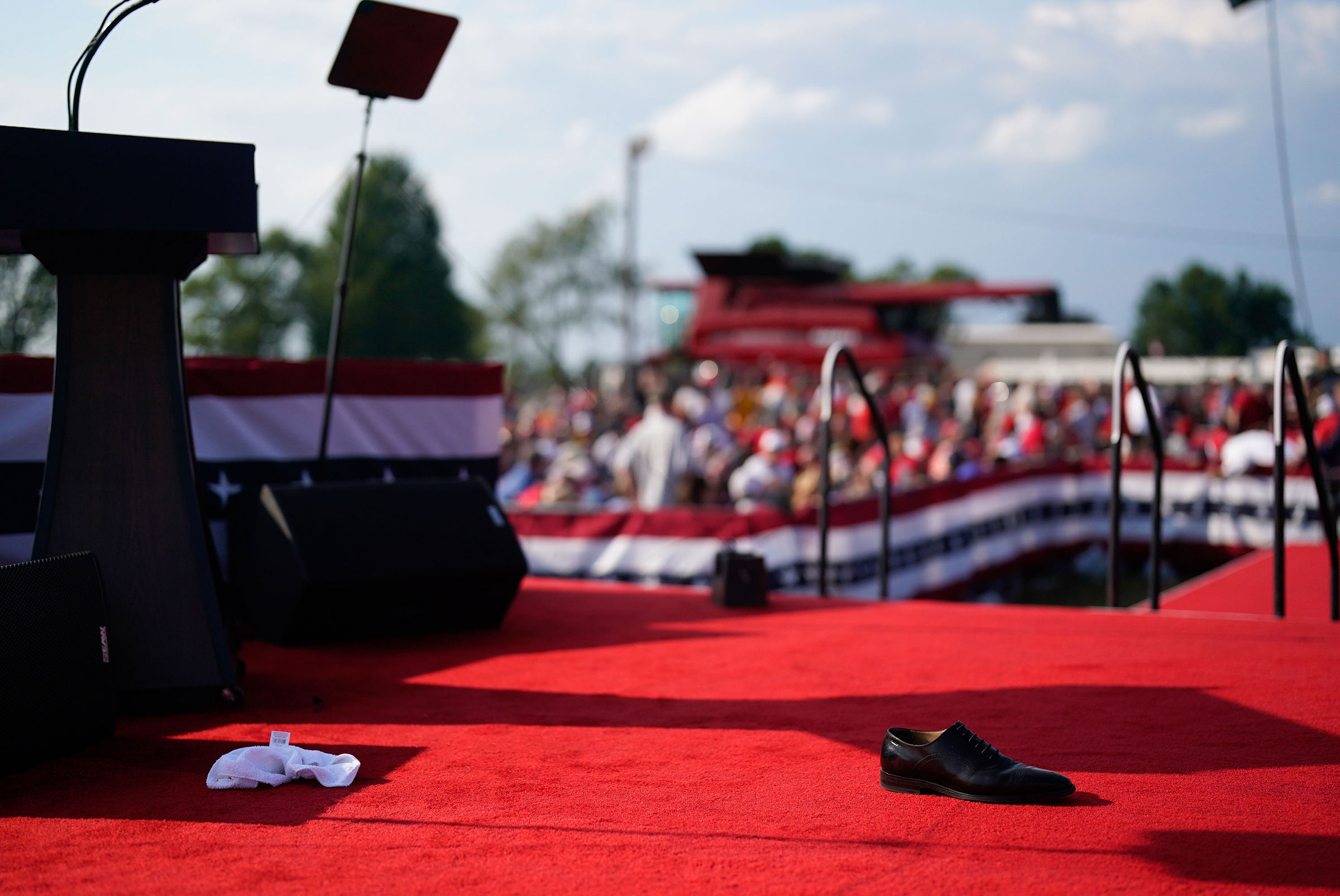The assassination attempt that narrowly missed Donald Trump at a campaign rally on July 13 has prompted a deluge of misinformation and disinformation online.
[time-brightcove not-tgx=”true”]
Depending on your perspective, the attack was either a failed plot by the “deep state” to remove President Joe Biden’s rival from the 2024 presidential race or a “false flag” operation designed to generate support for Trump. In fact, the FBI issued an official statement that a 20-year-old Pennsylvania man likely acted alone when he used an assault rifle to shoot the 45th president.
But facts are rarely enough to stop the onslaught of disinformation, the deliberate use of lies and misleading claims, and misinformation, its unwitting cousin.
Predictably, the unique circumstances of the shooting that left one dead and others injured has led to wild conjecture. Failing to secure a rooftop about 150 yards from the stage will no doubt cause hard questions for the Secret Service and their law enforcement partners in Butler, Pa., but it also opens the event to false narratives designed to advance the agendas of their authors. For Trump supporters, the shooting provides an opportunity to cast aspersions on the Biden Administration. Rep. Mike Collins (R-GA) posted on X, “Joe Biden sent the orders.” Rep. John James (R-MI) posted on the same platform, “They tried to silence him. They tried to jail him. Now they’ve tried to kill him.” Elon Musk, who owns the tech company, posted that the conduct of the Secret Service was either “Extreme incompetence or it was deliberate.”
Others speculated online that it was Trump who had manufactured the moment, using the hashtag “staged.” According to one user, “How did the [U.S. Secret Service] allow him to stop and pose for a photo opp if there was real danger??” A photo of a smiling Trump with a caption asking “Why is he so happy?” was removed from X because it was digitally altered.
In addition to providing an opportunity for political actors to advance their causes, a crisis also allows hostile foreign adversaries to exploit the demand for information by filling the void with false claims. As special counsel Robert Mueller concluded in his 2019 report for the Department of Justice, the goals of foreign interests are often simply to sow division in America society. If we are busy fighting we each other, we lack the bandwidth to involve ourselves in world affairs. Information warfare allows countries like Russia, China, Iran and North Korea to attack us without firing a shot.
Read More: The Danger of Treating Politics Like War
Long-term solutions to mitigate the challenges of disinformation require changes to the way we regulate social media, data privacy, campaign spending and political advertising. But in the meantime, we can address how we respond to a rapidly evolving information ecosystem.
First, leaders must speak to the public promptly during a crisis. Law enforcement officials tend to be cautious and stingy with facts until have been verified—good instincts, certainly, but unlikely to fulfill the insatiable appetites of the news media and the public during a crisis. In the absence of actual news, some people will fill the vacuum with speculation or fabrication. Instead, law enforcement officials can reassure the public by quickly and candidly stating what they know and what they don’t know, and even by explaining that some facts cannot be disclosed to avoid compromising the investigation. While the Secret Service will have some explaining to do in the days and weeks ahead, the FBI has provided regular updates about the suspect and its investigation in the attack as a domestic terrorism matter.
Second, the public needs to build resilience against the false claims that permeate social media, particularly in times of emergencies when people are most eager to learn the facts. Purveyors of disinformation exploit crises to advance their own political, personal or profit-driven agendas by flooding the zone with false claims. The lies are then repeated, sometimes by people who actually believe them. Once a false claim is out there, it can be difficult to debunk it.
Instead of believing everything we read online, we should engage in best practices for media literacy. Check the source of the information—is it a credible journalism brand or an anonymous user online, who might be an imposter or even a bot, programmed through artificial intelligence to expand the reach of a false claim. Look for a second source. If a report is accurate, it likely will be independently confirmed by another news outlet. Is the information in the news report attributed to a reliable source? Does the report cite evidence for its claim? If not, we should be skeptical of sensational news, and consumers of news can also verify claims with various fact-checking services online.
Democracy depends on an informed electorate. A disinformed electorate leads to chaos.

